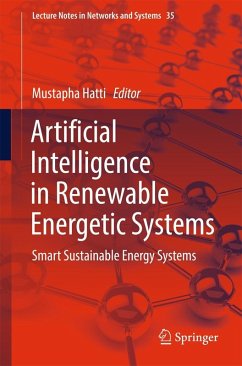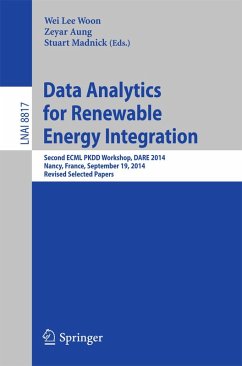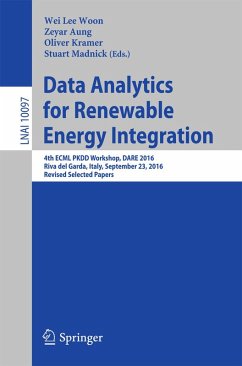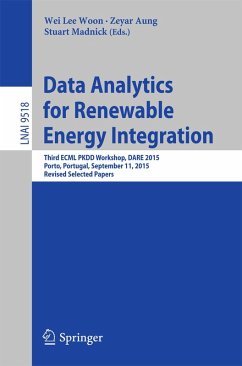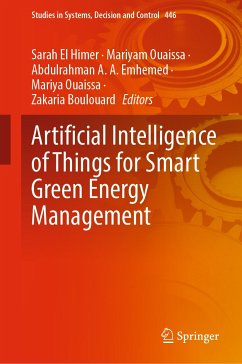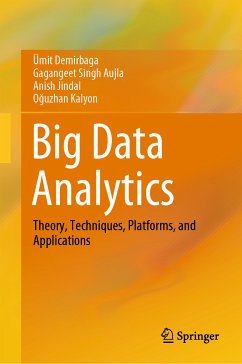
Data-driven Modelling of Wind Farm Flow Control Strategies (eBook, PDF)
Versandkostenfrei!
Sofort per Download lieferbar
112,95 €
inkl. MwSt.
Weitere Ausgaben:

PAYBACK Punkte
56 °P sammeln!
This book presents data-driven algorithms used in the context of wind farm modelling and exploits their relation with concepts from non-linear dynamical system theory. The algortihms include Input Output Dynamic Mode Decomposition and their combination with the Koopman Operator theory. The latter improves on modelling and analysis of the aerodynamic interaction between wind turbines in wind farms and assists in uncovering insights into the existing dynamics and improves models accuracy. The authors introduce the topic of wind farm flow control, illustrating current strategies devised to overco...
This book presents data-driven algorithms used in the context of wind farm modelling and exploits their relation with concepts from non-linear dynamical system theory. The algortihms include Input Output Dynamic Mode Decomposition and their combination with the Koopman Operator theory. The latter improves on modelling and analysis of the aerodynamic interaction between wind turbines in wind farms and assists in uncovering insights into the existing dynamics and improves models accuracy. The authors introduce the topic of wind farm flow control, illustrating current strategies devised to overcome power losses in wind plants due to the aerodynamic interaction between turbines. Although controlling wind farms as a whole is becoming increasingly important, the high dimensions and governing non-linear dynamics inherent of wind farm systems make the design of numerical optimal controllers computationally expensive. This book describes a possible pathway to circumvent this challenge through reduced order models that can embed the existing non-linearities. The authors make use of high fidelity open-source simulation datasets and developed algorithms to fully show the potential of this approach using visual results. The reader is motivated to use the datasets and algorithms and exploit the potential of the reduced order models.
Dieser Download kann aus rechtlichen Gründen nur mit Rechnungsadresse in A, B, BG, CY, CZ, D, DK, EW, E, FIN, F, GR, HR, H, IRL, I, LT, L, LR, M, NL, PL, P, R, S, SLO, SK ausgeliefert werden.





